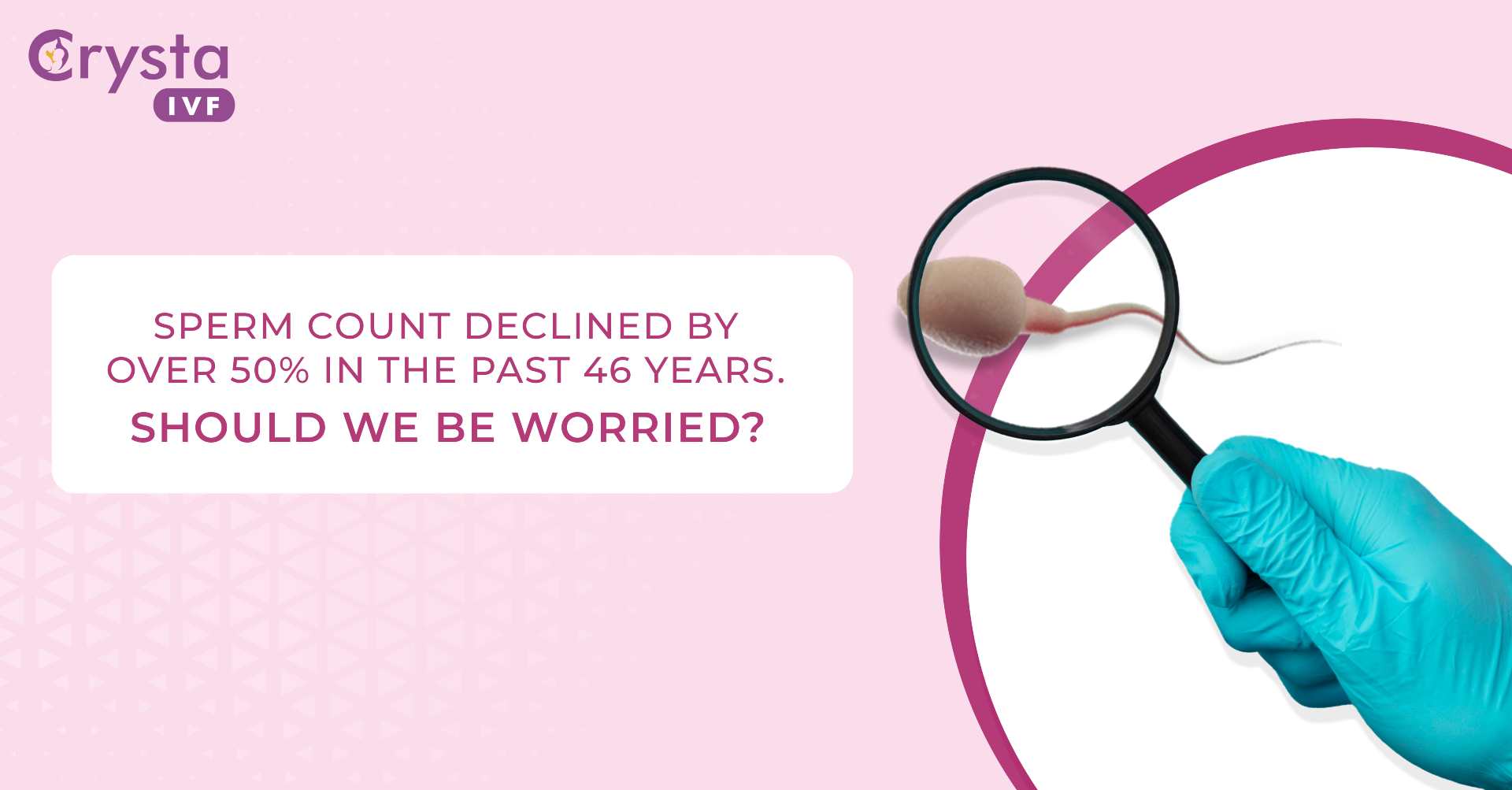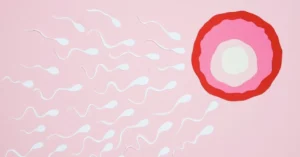Over the past few decades, infertility in men seems to be increasing. In at least half of all infertility cases, a male factor is a major contributing cause, and the primary reason for this is low sperm count and quality.
And now the recent studies published in the journal Human Reproduction Update have proven the decline in low sperm count and warn about a reproductive crisis. If the current trends continue or the findings are confirmed, this would have important implications for human reproduction.
These recent studies also highlighted the declining health in men in general due to fast urbanization and poor lifestyle choices.
So, let’s understand what the studies have found, their implications and why you should be concerned about your fertility health and lifestyle choices.
Sperm Count has been On The Decline For Years, Report Says
A study published in 2022 by an international team of researchers found that sperm counts in men have declined globally (53 countries), including India, by more than 50% over the last 46 years.
Sperm concentration fell from an estimated 101.2m per ml to 49.0m per ml between 1973 and 2018 – a drop of 51.6%.
The study also found that the rate of decline is increasing, with a particularly sharp drop occurring between 2002 and 2010.
While the reasons for this decline are not fully understood, there are a number of possible explanations, including exposure to environmental toxins, obesity, and stress. The reduction in sperm counts has severe implications for fertility, and we will likely see an increase in infertility in the years to come.
The good news is that steps can be taken to improve sperm health, including avoiding exposure to toxins, maintaining a healthy weight, and reducing stress.
But again, the prevailing stereotypes among the population are giving a boost to the factors that are contributing to higher rates of fertility problems.
A recent poll on Crysta IVF Linkedin page asked why people are still ignorant about their reproductive health. The majority of the people voted the reason ‘Hesitant towards the subject’ followed by ‘Lack of Awareness’ among the population.

What Does The Study Imply?
- A declining sperm count indicates a modern environment and lifestyle crisis.
- The declining trend might also represent a decline in the capacity of the general population to reproduce.
- Low sperm count is the primary cause of infertility in men, and
- India is also a major part of the falling sperm count globally.
- Daily lifestyle choices and chemicals in the environment are adversely affecting this fetal development.
- There is an urgent call for mass awareness among the population to promote healthier environments and reduce choices and factors that threaten our reproductive health.
The decline in sperm count is a cause for concern because it could lead to fertility problems and other health problems in men.
Reasons Behind Low Sperm Count Globally
Low sperm count refers to the semen (fluid substance) ejaculated during intercourse containing fewer sperm than normal. Lower sperm count also lowers the possibility of reaching sperm to the egg and thus causing the inability to conceive a child.
If you’ve low sperm production, you may experience the following:
- Low sex drive
- Erectile dysfunction
- Pain
- Swelling or a lump in the testicle area
- Other hormone abnormality
However, there are a few possible explanations. One possibility is that the decline is due to environmental factors, such as exposure to chemicals or pollution. Another possibility is that it is due to lifestyle factors, such as diet, obesity, alcohol, or stress levels.
The decline is also likely due to a combination of both environmental and lifestyle factors. Whatever the cause, the decline in sperm counts is a cause for concern, as it could have a negative impact on fertility rates.
How to Take Control of Your Fertility Health?
While a number of factors are contributing to low sperm count and reduced fertility rates, it is essential to consider taking control of your fertility health.
The simple changes to your current lifestyle and diet not only help improve your reproductive health and chances of conceiving and are also super-friendly for your overall well-being.
Limit Alcohol Intake
Moderation in most things is good, and alcohol is no exception. Repeatedly, excessive alcohol consumption has been linked to lower sperm count and an imbalance in male reproductive hormones.
While there is no study on how much alcohol one should take before their fertility is negatively impacted, you should be aware of its negative consequences. Therefore, try limiting it, especially around the time of conceiving.
Say GoodBye to Stress
It’s time you say goodbye to stress & anxiety. Any kind of stress is bad for your mental health and overall well-being. Fertility experts have repeatedly insisted that stress may impair your fertility too.
Though severe stress needs medical attention, milder forms can be controlled. Practice relaxation techniques and meditation, spend time in nature, exercise daily, and try to be in a positive environment.
Maintain a Healthy Weight
Being in good shape is beneficial for sperm production. Men overweight (BMI > 28) may have difficulty conceiving because of fewer sperm counts. Obesity or being underweight is also linked with an imbalance in the reproductive hormone levels, which can cause sperm production.
Healthy Eating Plate
A healthy diet has an important role to play in your reproductive health. Many nutrients are critical for improving sperm production, including vitamins, minerals, and antioxidants.
Taking a particular multivitamin can provide additional antioxidants such as zinc, selenium, calcium supplements, and vitamin C, all of which support sperm production.
Be Cautious of Overheating
Excessive exposure to harmful chemicals and heat are common causes of male infertility. Medical science also indicates that sperm are opposed to high temperatures, and men’s reproductive organs are sensitive to heat, radiation, and certain chemicals.
So, it’s better to maintain a distance or avoid spending more time in such an environment.
Takeaway
The recent studies are a matter of concern for couples trying to conceive and a huge problem for society and the human race. A team of researchers and scientists also warned – If the global trend of reduced sperm count continues, then it may also lead to a reproductive crisis in the near future.
This is an urgent call to unite and spread awareness to as many people as possible. Also, remember to speak to fertility experts at Crysta IVF if you are dealing with fertility issues, have fertility health questions, or are having difficulty getting pregnant.
Our years of experience and expertise have helped countless couples overcome their infertility and guided them toward good reproductive health and overall well-being.




